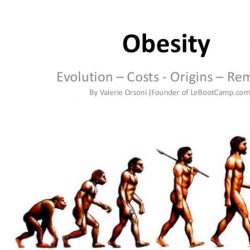Nondiabetic obese and overweight people lose more weight, are more likely to reverse prediabetes and are slower to develop type 2 diabetes when they take the diabetes drug liraglutide in addition to dieting and exercising, a new study finds. The results of the multicenter study were presented recently at the joint meeting of the International Society of Endocrinology and the … [Read more...]
Weight Management News

Soft-drink tax worth its weight in lost kilos: A Study
A tax on sweetened soft drinks could be an effective weapon in the war against obesity, generating weight losses of up to 3.64 kilograms as individuals reduce their consumption. Researchers from Monash University, Imperial College London and University of York and Lancaster University, England have estimated the extent to which drinking habits would change if beverages such … [Read more...]
Measuring waist circumference would improve detection of children, adolescents with cardiometabolic risk: A Spanish Study
A study led by researchers from IMIM (Hospital del Mar Medical Research Institute) and published in the journal PLoS One concludes that including waist circumference measurements in clinical practice, together with the traditional height and weight measurements, would make it easier to detect children and adolescents with cardiometabolic risk, i.e. those with a higher … [Read more...]
Obesity-induced fatty liver disease reversed: A Study
Johns Hopkins researchers have discovered that valproic acid, a widely prescribed drug for treating epilepsy, has the additional benefits of reducing fat accumulation in the liver and lowering blood sugar levels in the blood of obese mice. A summary of their research appears in this month's issue of the journal Molecular Pharmacology. Fatty liver disease can lead to liver … [Read more...]
Relationship with your mother increase child’s chances of obesity: University of Illinois Study
Could the quality of your attachment to your parents affect your own child's risk for obesity? A new University of Illinois study says it can. "If your mother regularly punished or dismissed your anger, anxiety, or sadness instead of being sensitive to your distress and giving you strategies for handling those feelings, you may be insecurely attached and parenting your … [Read more...]
Tighter economic regulation needed to reverse obesity epidemic: A Study
Governments could slow -- and even reverse -- the growing epidemic of obesity by taking measures to counter fast food consumption, according to a study published in the Bulletin of the World Health Organization today. The study, by a team of researchers based in the United States and Ireland, is the first to look at the effects of deregulation in the economy, including the … [Read more...]
Peanuts and peanut butter may hold key to preventing obesity: University of Houston Study
Hispanic middle school children, at high risk for being overweight or obese, reduced their Body Mass Index (BMI) when they adhered to a nutrition intervention that included a snack of peanuts, compared to those children who did not. The 12-week study was conducted by researchers at the University of Houston Department of Health and Human Performance (HHP), Baylor College of … [Read more...]
Five-year outcomes following bariatric surgery in patients with BMIs of 50 to 60: A Norwegian Study
The bariatric surgical procedure biliopancreatic diversion with duodenal switch resulted in more weight loss and better improvement in blood lipids and glucose five years after surgery compared with usual gastric bypass surgery but duodenal switch was associated with more long-term surgical and nutritional complications and more adverse gastrointestinal effects, according to a … [Read more...]
Rapid and unexpected weight gain after fecal transplant: A Study
A woman successfully treated for a recurrent Clostridium difficile infection with stool from an overweight donor rapidly gained weight herself afterwards, becoming obese, according to a case report published in the new journal Open Forum Infectious Diseases. Fecal microbiota transplant (FMT) is a promising treatment for relapsing C. difficile infections, a common cause of … [Read more...]
High-altitude weight loss may have an evolutionary advantage: A Study
Weight loss at high altitudes -- something universally experienced by climbers and people who move to higher terrain -- may not be a detrimental effect, but rather is likely an evolutionarily-programmed adaptation, according to a new article in BioEssays. Researchers explain that low oxygen causes fat and protein to be broken down, leading to the release of ketones … [Read more...]
Obese children more likely to have complex elbow fractures: A Study
Pediatric obesity is currently an epidemic, with the prevalence having quadruped over the last 25 years. Children diagnosed with obesity can be at risk for various long-term health issues and may be putting their musculoskeletal system at risk. According to new research in the February issue of the Journal of Bone and Joint Surgery(JBJS), obese children who sustain a … [Read more...]
Fear of being too skinny may put teens at risk for depression and steroid use: A Study
Teenage boys who think they're too skinny when they are actually a healthy weight are at greater risk of being depressed as teens and as adults when compared to other boys, even those who think they are too heavy, according to findings published by the American Psychological Association. Boys who inaccurately see themselves as overweight are also more likely to be depressed … [Read more...]
Labeling obesity as a disease may have psychological costs: University of Minnesota Study
Messages that describe obesity as a disease may undermine healthy behaviors and beliefs among obese individuals, according to a new study published in Psychological Science, a journal of the Association for Psychological Science. The findings show that obese individuals exposed to such messages placed less importance on health-focused dieting and reported less concern about … [Read more...]
Certain probiotics could help women lose weight: A Canadian Study
Certain probiotics could help women lose weight and keep it off, according to a recent study published in the British Journal of Nutrition by a team of researchers headed by Université Laval Professor Angelo Tremblay. Studies have already demonstrated that the intestinal flora of obese individuals differs from that of thin people. That difference may be due to the fact that … [Read more...]
Overweight linked to poorer memory: University of Cambridge Study
University of Cambridge, adding to increasing evidence of a link between memory and overeating. In a preliminary study published in The Quarterly Journal of Experimental Psychology, researchers from the Department of Psychology at Cambridge found an association between high body mass index (BMI) and poorer performance on a test of episodic memory. Although only a small … [Read more...]
Couples lifestyle choices and obesity risk linked: University of Edinburgh Study
The lifestyle a person shares with their partner has a greater influence on their chances of becoming obese than their upbringing, research suggests. By middle age, choices made by couples -- including those linked to diet and exercise -- have a much greater impact than the lifestyle each shared with siblings and parents growing up. Although by middle age siblings have a … [Read more...]
Losing only 5 percent of your body weight is enough to get significant health benefits: A Study
Those who struggle with obesity, take heart. Losing as little as 5% of your body weight is enough to reap significant health benefits, according to a study published February 22 in Cell Metabolism. The randomized controlled trial of 40 obese men and women compared, for the first time, the health outcomes of 5%, 10%, and 15% weight loss. While additional weight loss further … [Read more...]
Survivors of childhood liver transplant at risk of becoming ‘skinny fat’: University of Queensland Study
New research reports that survivors of childhood liver transplant remain nutritionally compromised over the long-term. Findings published in Liver Transplantation, a journal of the American Association for the Study of Liver Diseases and the International Liver Transplantation Society, indicate that the recipients' return to normal weight post-transplant was due to an increase … [Read more...]
Families like practical group wellness program, lose weight: A Study
Many children are obese these days, but what can be done about it? Research-proven treatments for obesity exist, but they rely on regular one-on-one meetings with a trained health coach. So these "behavioral" treatments are seldom available outside of research studies in specialty medical centers. It's feasible and acceptable to give this same kind of behavioral treatment to … [Read more...]
Female hormones play a key role in obesity epidemic: University of Adelaide Study
An imbalance of female sex hormones among men in Western nations may be contributing to high levels of male obesity, according to new research from the University of Adelaide. In a paper published in the online journal PLOS ONE, researchers from the University's School of Medical Sciences suggest that obesity among Western men could be linked with exposure to substances … [Read more...]
Obesity gene linked to hormonal changes that favor energy surplus: A Swedish Study
A new study from Uppsala University demonstrates that elderly humans carrying a common variant of the fat mass and obesity gene FTO also have a shifted endocrine balance. Low blood concentrations of the satiety hormone leptin and high blood concentrations of the hunger promoting hormone ghrelin makes carriers of the FTO gene put on weight. The findings are published in the … [Read more...]
Weight loss program helps diabetes prevention: Indiana University Study
A new randomized controlled study conducted by Indiana University School of Medicine researchers and published online in the American Journal of Public Health found that adults with prediabetes who followed a nationally-available weight management program with a prediabetes-specific component, Weight Watchers, lost significantly more weight and experienced better blood glucose … [Read more...]
Exposure to air pollution increases risk of obesity: Duke University Study
Laboratory rats who breathed Beijing's highly polluted air gained weight and experienced cardio-respiratory and metabolic dysfunctions after three to eight weeks of exposure. A study appearing in the March issue of the Journal of the Federation of American Societies for Experimental Biology (FASEB) placed pregnant rats and their offspring in two chambers, one exposed to … [Read more...]
Stigma regarding weight loss may be overblown: North Carolina State University
A qualitative study from North Carolina State University finds that most people who have lost a lot of weight don't perceive themselves as being "judged" because they used to be overweight or obese -- which contradicts earlier research that people were still stigmatized even after reaching a healthy weight. Previous research found that people judge thin individuals more … [Read more...]
Epidemiologist uncovers new genes linked to abdominal fat: University of Louisville Study
Excess abdominal fat can be a precursor to diseases such as cardiovascular disease, type 2 diabetes and cancer. A person's measure of belly fat is reflected in the ratio of waist circumference to hip circumference, and it is estimated that genetics account for about 30-60 percent of waist-to-hip ratio (WHR). Kira Taylor, Ph.D., M.S., assistant professor, University of … [Read more...]
Who’s to blame for obesity? Policy makers, the food industry, or individuals: University of Illinois Study
Fast food restaurants take a lot of heat for the rise in obesity in the United States, but is it really their fault? A research survey conducted by two food economists revealed that most people believe individuals are to blame for their own obesity -- not restaurants, grocery stores, farmers, or government policies. One implication from this research is that creating and … [Read more...]
Effect of maternal glycemia on childhood obesity and metabolic dysfunction
In a study to be presented on Feb. 5 in an oral concurrent session at 1:15 p.m. PST, at the Society for Maternal-Fetal Medicine's annual meeting, The Pregnancy Meeting™, in San Diego, researchers will report on the impact of maternal glycemia on childhood obesity and metabolic dysfunction. The study, titled The Effect of Maternal Glycemia on Childhood Obesity and Metabolic … [Read more...]
Healthy diet linked to lower risk of chronic lung disease: A Study
Eating a diet rich in whole grains, polyunsaturated fats and nuts -- and low in red and processed meat, refined grains and sugary drinks -- is associated with a lower risk of chronic lung disease (chronic obstructive pulmonary disease or COPD), finds a study published in The BMJ this week. The finding supports the importance of a healthy diet to promote lung health. COPD … [Read more...]
Epigenetic enzyme regulates fat formation: A German Study
Freiburg researchers demonstrate that LSD1 plays a key role in metabolic processes The human body reacts to environmental influences like cold or nutritional imbalance through adaptation. There is a change in metabolic processes in white adipose tissue in mammals. This results in the development of brown-like or beige fat cells, which are located in white fat depots and … [Read more...]
Web-based course to prevent excessive weight gain may improve health in young adults
The transition from adolescence to adulthood presents individuals with many challenges. Perhaps none are as important as those relating to health and quality of life. Young adults, aged 18 to 25, are at high risk for weight gain. Being mild to moderately overweight during this period substantially increases the likelihood of obesity at age 35 to 37. To prevent weight gain and … [Read more...]
- « Previous Page
- 1
- …
- 6
- 7
- 8
- 9
- 10
- …
- 27
- Next Page »





























